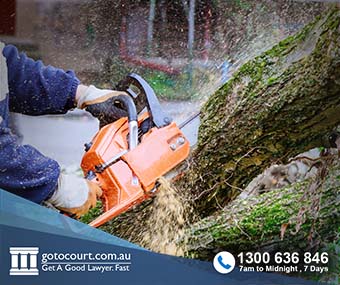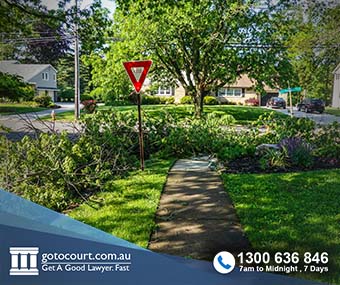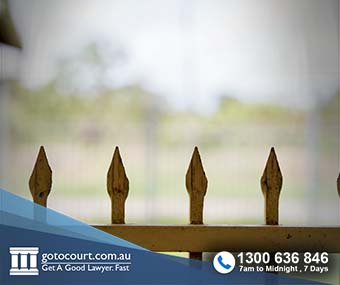Fence Disputes (NSW)
Fence Disputes (NSW)
Fence disputes often occur between neighbours. They can relate to an existing fence, to the boundary lines of properties, or to retaining walls. Different legislation is applicable to different types of fence disputes.
Fence disputes regarding fences which divide two neighbouring properties are governed by the Dividing Fences Act 1991. Boundary disputes are governed by the Real Property Act 1900. Disputes about retaining walls do not have specific legislation, however, in some instances retaining walls are covered by the Dividing Fences Act 1991.
Dividing fence disputes
A dividing fence is a fence which separates two adjoining properties. It can be made of any material and is usually situated on the boundary line of the properties. In some instances, fences may need repair or replacing due to wear and tear or old age. Usually, neighbours would discuss how the costs of the fence would be apportioned, with each party paying half of the costs of the new fence. Discussions take place as to the type of fence and the cost of each type of fence is considered. The neighbours usually reach an agreement after such discussions.
In some instances, parties cannot reach an agreement on the cost and type of a new fence. In these circumstances, one of the parties may wish to make an application to the Consumer and Commercial Division of the New South Wales Civil and Administrative Tribunal (NCAT) or to the Local Court for what is known as a ‘fencing order’. A fencing order is an order received from the Court or Tribunal as to what work needs to be carried out and how the costs are going to be split between the parties.
If an application is made through NCAT, then the other party will receive a Notice of Conciliation and Hearing. Conciliation is a process where the parties attempt to resolve the matter before it goes to hearing. If the parties cannot reach an agreement at the Conciliation, the matter will be set down for hearing. A Tribunal member will then decide the matter on the day of the hearing.
Boundary disputes
Boundary disputes commonly occur when two surveyors disagree on the location of a common boundary. When this occurs, the owner can apply to the Registrar General to make a determination as to the boundary line.
An application (and accompanying filing fee) must be made through the New South Wales Land Registry Services. Boundary disputes are determined by the Registrar General pursuant to Section 14A of the Real Property Act which allows a registered proprietor to claim
“title to the like estate in the whole or part of any adjoining land comprised in a limited folio of the Register adverse to or in derogation of the title of the registered proprietor thereof.”
Under Section 14A, the Registrar-General may require such an application to be accompanied by a plan of survey comprising the land being claimed and the applicant’s adjoining land. If such an application is granted, the land to which title was claimed ceases to be subject to any encumbrances, interests, rights or privileges previously affecting it and becomes subject to the same encumbrances, liens, interests and burdens and to the same rights, privileges, benefits, easements and profits à prendre as the applicant’s adjoining land.
Once a determination is made, the Registrar General will decide whether there is doubt as to where the boundary line lies. If the Registrar General is satisfied that the boundary line is correct, then the application will be refused. Both parties will be notified of the Registrar General’s determination. If an owner disagrees with the decision of the Registrar General, an appeal to the Land and Environment Court can be made within 28 days of the determination being received.
Retaining walls
Retaining walls are used to support or hold back earth and are usually found in adjoining properties where the ground is not level. Neighbours of adjoining properties usually share the cost of building and maintaining retaining walls between the properties in circumstances where the retaining wall forms part of the dividing fence. In such an instance, the retaining wall is covered by the Dividing Fences Act.
However, in circumstances where the retaining wall does not form part of the dividing fence, the situation is different. There is no governing legislation in this situation and the decision may be based on various factors such as:
- the reason the retaining wall is necessary;
- the actions of the parties involved and;
- what is reasonable in the circumstances.
Legal advice should be obtained if you believe a retaining wall is necessary on your property and you and your neighbour cannot reach an agreement as to the apportionment of costs for building and maintaining the same.
If you require legal advice or representation in a fence dispute or in any other legal matter please contact Go To Court Lawyers.

Affordable Lawyers
Our Go To Court Lawyers will assist you in all areas of law. We specialise in providing legal advice urgently – at the time when you need it most. If you need a lawyer right now, today, we can help you – no matter where you are in Australia.How It Works




1. You speak directly to a lawyer
When you call the Go To Court Legal Hotline, you will be connected directly to a lawyer, every time.

2. Get your legal situation assessed
We determine the best way forward in your legal matter, free of charge. If you want to go ahead and book a face-to-face appointment, we will connect you with a specialist in your local area.

3. We arrange everything as needed
If you want to go ahead and book a fact-to-face appointment, we will connect you with a specialist in your local area no matter where you are and even at very short notice.











